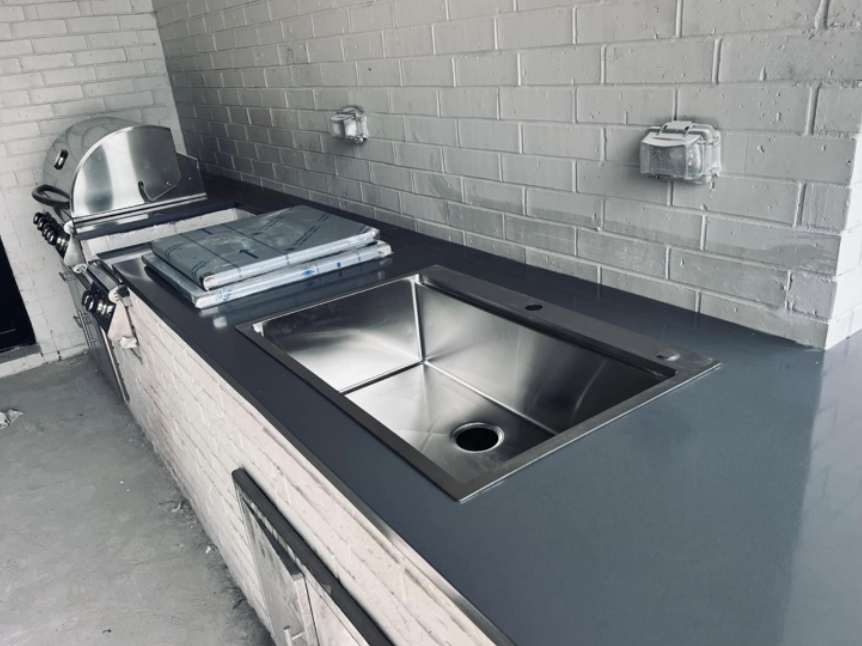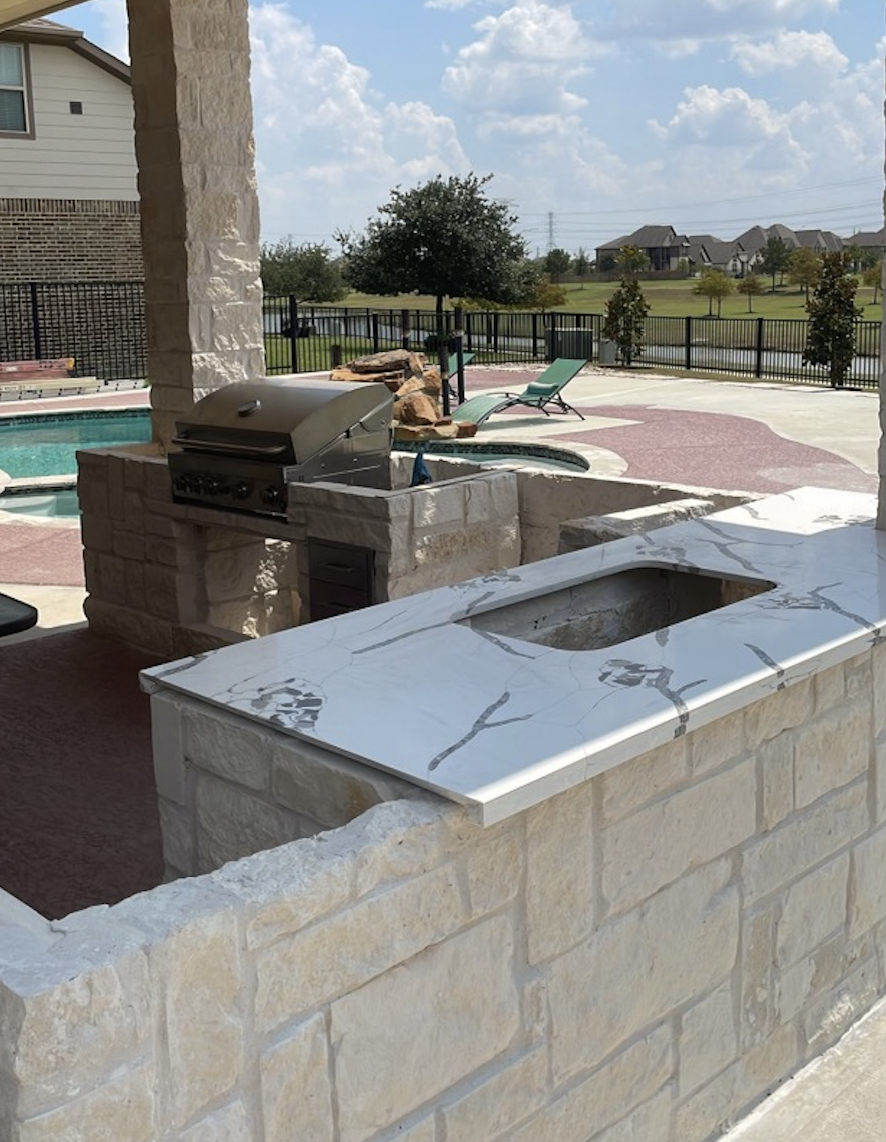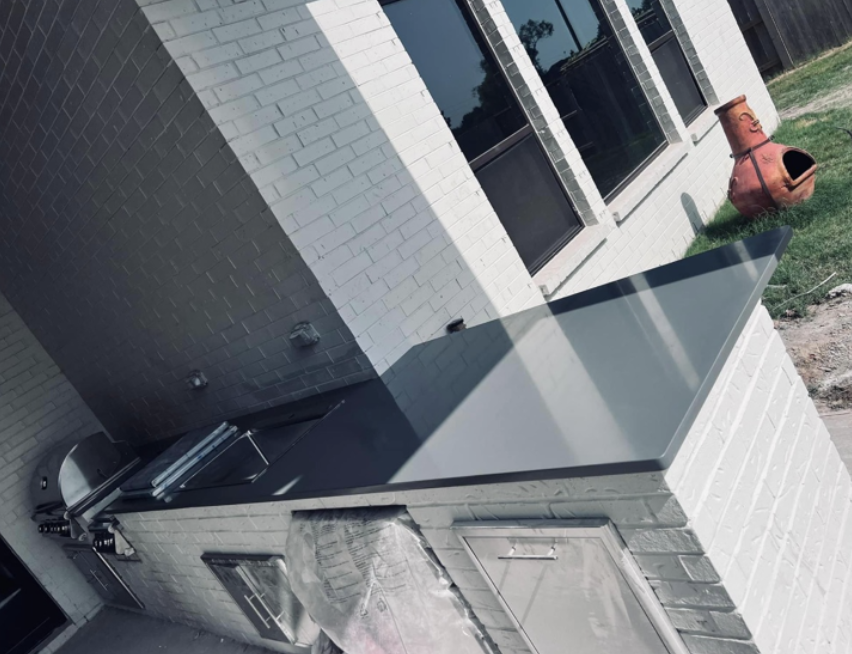The Great Indoors: Why Quartz Countertops Aren't Ideal for Outdoor Spaces
Introduction: When it comes to choosing the right materials for your outdoor spaces, quartz countertops, known for their durability and aesthetic appeal indoors, may not be the best fit for external environments. In this blog post, we'll delve into the reasons why using quartz countertops outdoors might not be the optimal choice.


-Susceptibility to UV Rays:
Quartz countertops are engineered using resin, which can be susceptible to damage from prolonged exposure to UV rays. Over time, sunlight can cause discoloration, fading, and a breakdown of the resin binders, compromising the structural integrity of the countertop.
-Temperature Extremes:
Outdoor spaces experience a wide range of temperatures, from scorching summer heat to freezing winter cold. Quartz may not fare well under extreme temperature variations, leading to potential cracking or warping. Natural stone alternatives, like granite or concrete, often withstand temperature fluctuations better.
Non-Porous, but Not Immune to Stains: While quartz is renowned for its non-porous nature, preventing liquids from seeping into the surface, it is not completely immune to stains. Outdoor spaces subject quartz countertops to various substances, such as oils, bird droppings, or tree sap, which can leave lasting marks.
Limited Resistance to Harsh Weather Conditions: Outdoor environments expose surfaces to rain, hail, and other harsh weather conditions. Quartz, being a mix of natural quartz crystals and resin, may not have the same resistance as materials specifically designed for outdoor use, such as stainless steel, concrete, or certain types of natural stone.
-Risk of Surface Damage:
Outdoor activities can involve heavy items, sharp objects, and abrasive materials that may cause damage to quartz surfaces. Chips, scratches, and dents can compromise both the appearance and functionality of the countertop over time.
-Maintenance Challenges:
While quartz is known for being low-maintenance indoors, the demands of the outdoors may require more frequent cleaning and maintenance. Harsh weather conditions and exposure to natural elements may necessitate extra care to preserve the aesthetic qualities of the countertop.
Conclusion: While quartz countertops shine in indoor settings, their susceptibility to UV rays, temperature extremes, and potential for staining make them less than ideal for outdoor spaces. When designing your outdoor kitchen or entertaining area, it's crucial to explore materials specifically engineered to withstand the challenges posed by nature. Consider durable alternatives like granite, concrete, or stainless steel for countertops that not only endure the elements but also enhance the beauty of your outdoor oasis.
